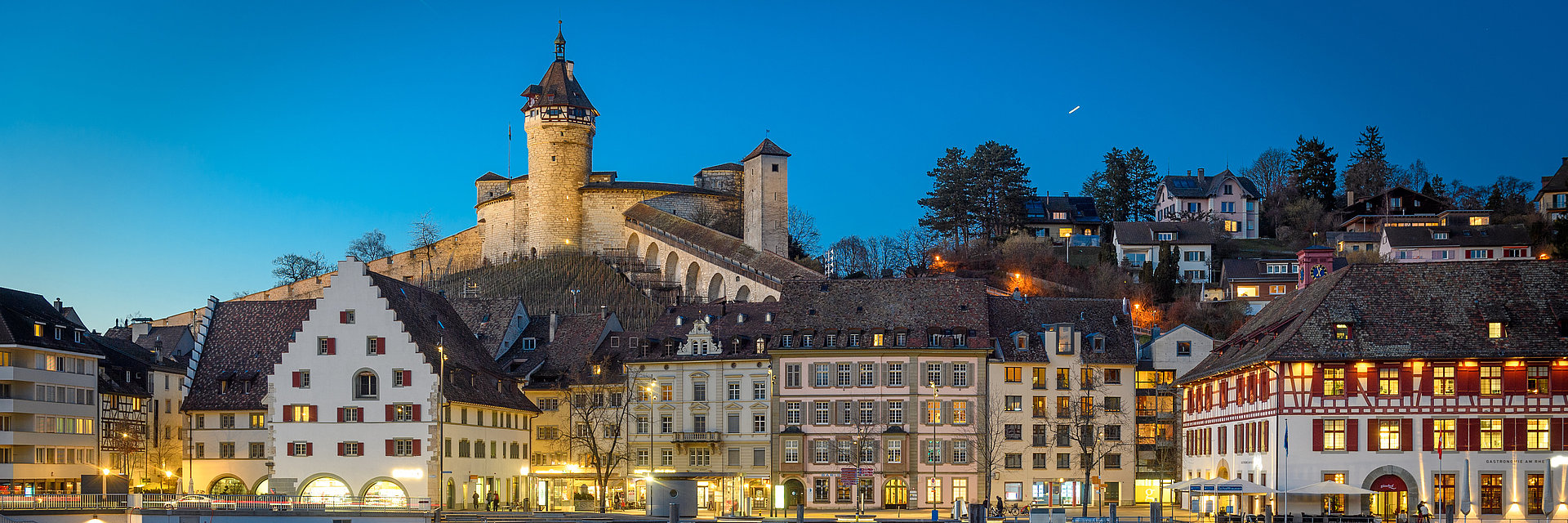New CoME EASY related information

European cooperation between the Covenant of Mayors (CoM) and the European Energy Award (EEA) sealed by a Memorandum of Understanding
The MoU establishes bilateral cooperation between EEA and CoM-Europe in order to maximise synergies and complementarities between the two initiatives while minimising dual processes. Both agree on greater collaboration and mutual recognition of their respective processes and achievements. The parties intend to give strong visibility to their partnership. The MoU was signed by Gilbert Theato and Helmut Strasser, board members of Association European Energy Award AISBL and by Julije Domac, for the Covenant of Mayors Europe. With its mission to create tools that bridge the gap between EEA, CoM and other initiatives, the CoME EASY project represents a first important step towards joining forces.
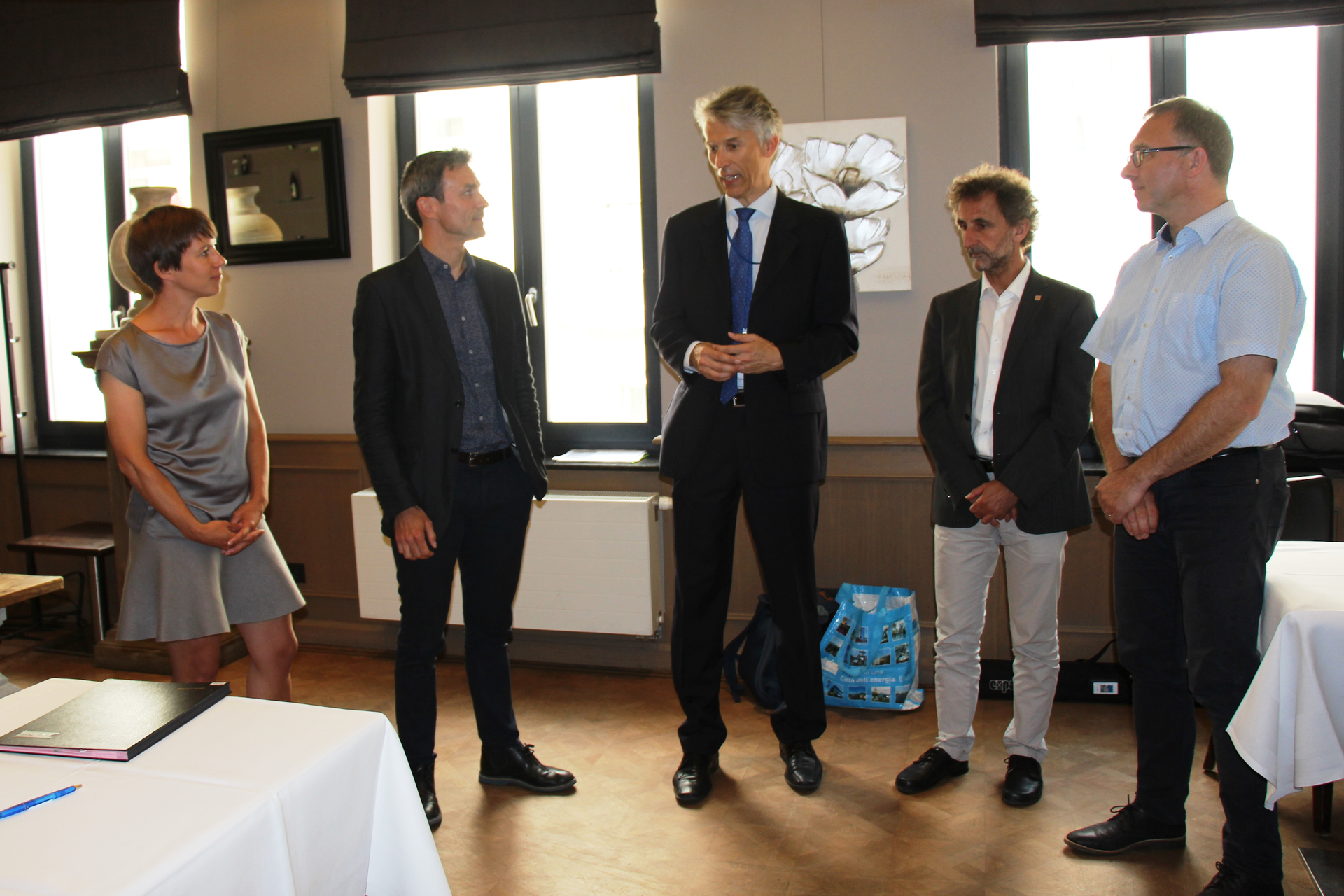
CoME EASY was present at the EUSEW 2019
On June 19th, 2019, a session on ‘Local authorities as drivers to address climate change’ was moderated at the EU Sustainable Energy Week EUSEW by Charlotte Spoerndli, head of the EEA AISBL, in Brussels.
CoME EASY was saluted as a project helping several initiatives to synchronise their benefits and requirements, thus supporting local authorities to engage in several initiatives such as CoM and EEA and thereby improve their energy and climate performances, including both measures to mitigate as well as to adapt to climate change.
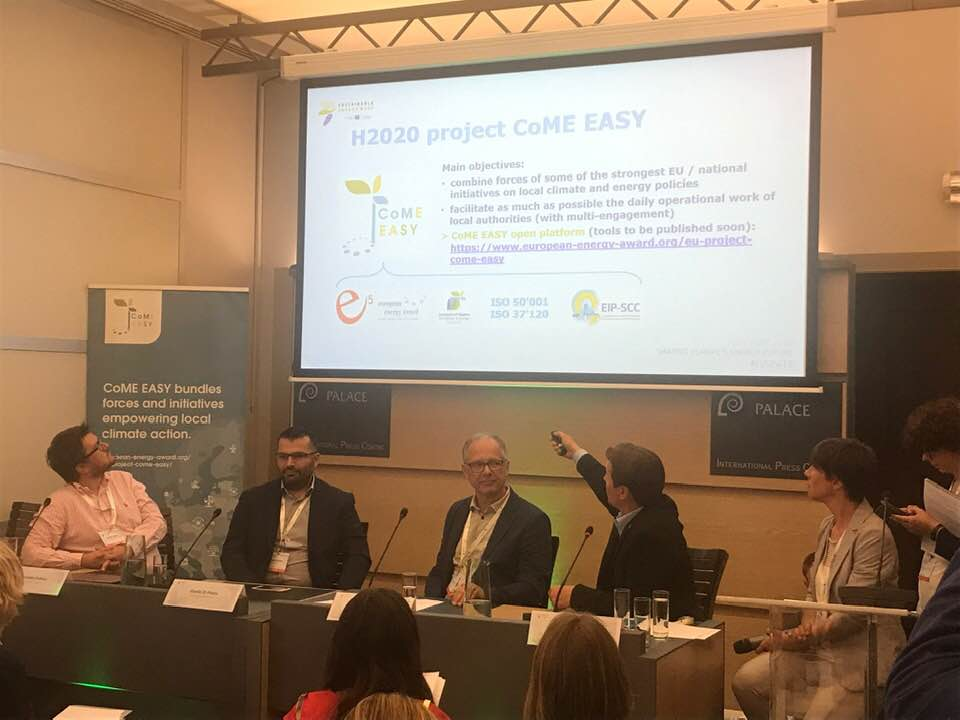
The Smart City Guidance Package: book available online
A Roadmap for Integrated Planning and Implementation of Smart City projects
Energy efficiency and strategic collaboration with local partners, supported by ICT tools to improve the quality of life of European citizens, take a long-term perspective on the built environment: these are the key elements of the sustainable city of the future identified by the 'Smart City Guidance Package' (SCGP) launched by the European Innovation Partnership on Smart Cities and Communities (EIP-SCC) at the European Union Sustainable Energy Week #EUSEW19.
The Guide published by EIP-SCC takes its cue from the 17 sustainable development objectives for 2030 set by the UN and proposes a seven-step roadmap to support stakeholders in the integrated, cross-sectoral planning and implementation of innovation projects, synergies and strategies for the smart city.
Judith Borsboom-van Beurden, main author of the publication “The Smart City Guidance Package” offers inspiration and guides city administrations and urban stakeholders by bundling experiences and best practices of cities working on ambitious smart city strategies and projects. It provides insight into obstacles frequently met during implementation and explores what it takes to scale up and replicate them. Its final aim is to support building a community around the core of the development, implementation and replication of smart city plans and projects, to capture the collective intelligence that has been built up in recent years. In this way, it helps to prepare the next generation of smart city projects and to involve new cities and urban stakeholders within and outside the EIP-SCC.
Bernard Gindroz, representing CEN/CENELEC/etsi and eea, highlighted how the roadmap for integrated planning and implementation is fully aligned with ISO standards in this field, which are explicitly mentioned for every step, and how standardisation can support the smart and sustainable development of cities.
Many CoME Easy members have contributed to this book.
The Smart City Guidance Package can be downloaded as pdf here:
News on the CoME EASY project
Release of the first CoME EASY tools
New synchronizing CoME EASY tools have been developed, building upon the identified compatibilities and mutually reinforcing merits of divers initiatives. The tools have been embedded as additional features into the eea Management Tool EMT and are the following:
- - The Emission Path Tool (EPT), a set of closely related tools, including the Baseline and Monitoring Emission Inventory (BEI/MEI) according to the CoM methodology and a scenario calculator.
- - The Key Performance Indicators (KPIs) Dashboard for benchmarking, compliant with the main systems in use at EU level.
- - A Best Practice Library to provide best practices from involved cities and from interesting networks for incitement and replication.
Testing the new tools with the support of our Ambassadors
The 18 CoME EASY Ambassador Municipalities of 7 European countries will now test the new tools and methods to create their SECAP or to upgrade their SEAP into a SECAP with EU2030 targets. Besides renewing their energy policy based on real data with ambitious targets, they will provide valuable inputs to our project in of their added value, applicability and user-friendliness. Each Ambassador Municipality will share three of its best practices.
CoME EASY partners will develop a new eea area on climate change adaptation
Due to the increasing relevance of climate change adaptation measures for local authorities to complement mitigation measures, the CoME EASY project is developing a new seventh eea chapter that will explicitly address the need of communities to adapt to climate change effects and build resilience. This new chapter will also close a gap in the international landscape of energy and climate policy management initiatives, all of which have so far mainly focused on mitigation measures to be implemented on local levels.
The 2018 UN Climate Change Conference COP24 in Katowice
This year’s UN Climate Change Conference COP24 was organized in Katowice, Poland, between December 2nd-15th.
Aiming at adopting a Paris “work programme”, a detailed set of rules and guidelines on how nations must monitor and report the implementation of the 2015 Paris Agreement, representatives of nearly 200 nations tenaciously struggled for two weeks to find a common solution. In the end, they have agreed on a set of resolutions and provided a foundation that will bring forward and reinforce the implementation of climate action worldwide. Acknowledging IPCC’s recent special report – which outlines the urgency and calls for increased efforts to prevent surpassing the 1.5°C warming threshold (compared to pre-industrial levels) to avoid catastrophic effects on the environment – the climate conference demands action to mitigate climate change as well as to strengthen resilience and adapt to the manifold effects of global warming.
The EU climate policy, based on the EU Adaptation Strategy, adopted in 2013, highlights the importance of adaptability. Ahead of COP24, the European Commission published an evaluation of the Adaptation Strategy that provides insightful information on the progress recorded. The analysis highlights achieved successes, but also shows how Europe is still vulnerable to effects of global warming. It concludes that adapting to climate change effects is more urgent than anticipated in the EU Strategy and proposes areas where more effort has to be invested. More information at:
https://ec.europa.eu/clima/policies/adaptation/what_en
The CoME EASY Ambassador Municipalities
Municipalities are the main target of the CoME EASY project, with the ultimate objective to facilitate their commitment to an increasingly sustainable energy and climate policy according to EU objectives. Within the project, 18 selected Ambassador Municipalities that are already involved in the EEA program are taking a key role: they are asked to implement and test the new CoME EASY tools that bring together different requirements and strengths for a set of initiatives that will facilitate the multi-application of these initiatives by municipalities, with the goal of improving local energy and climate policies. They have been selected for being frontrunners in their regions and, as role models, sharing their experiences in using the CoME EASY tools with peer municipalities. The Ambassadors are of different sizes, have different characteristics and are spread across seven European countries:
Austria: Dornbirn, Feldkirch, Klagenfurt
France: Ville de Besançon, Grand Besançon, Brest Métropole, Vienne Condrieu Agglomération
Germany: Lörrach, Ludwigsburg
Italy: Firenze, Merano, Montaione
Luxemburg: Beckerich
Romania: Iași, Vama Buzăului
Switzerland: Lausanne, Lumino, St. Gallen
The final CoME EASY tools and the Ambassadors’ experiences will be transferred to other municipalities during the project roll-out phase and made available to contribute to more efficient and successful implementations of energy and climate policies on local level, according to the EU 2030 targets.
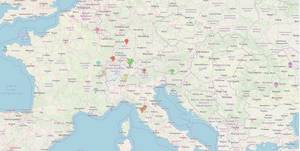
EEA gold cities (re)awarded during Annual EEA Event in the Austrian City of Baden
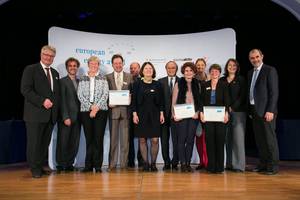
On November 5th, 2018, EEA municipalities from all over Europe have been (re)awarded the European Energy Award Gold during this year’s Annual EEA Event in the Austrian City of Baden. The European Energy Award Gold is the highest award given to cities and municipalities that are continuously committed to the efficient use of energy, renewable energies and climate protection at European level and has to be confirmed every four years. It is awarded to municipalities that meet particularly high standards with regard to sustainable energy and climate policy and succeeded in implementing at least 75% of measures within their respective scope of action.
A high percentage of the CoME EASY Ambassador Municipalities at the same time are EEA Gold municipalities, having shown their long-term commitment to sustainable and responsible energy and climate policies and thus being certified role models for other dedicated cities. Among this year’s (re)awarded cities were Dornbirn (AT), Ludwigsburg (DE), Lausanne and Lumino (both CH). Other Gold-labelled Ambassadors, having been (re)awarded in the previous years, are Feldkirch (AT), St. Gallen (CH), Lörrach (DE), Besançon (FR), Montaione (IT) and Beckerich (LU) . More information at: www.european-energy-award.org/eea-gold-municipalities/
Save the date for the 2019 Covenant of Mayors Investment Forum
The 2019 Covenant of Mayors Investment Forum: Energy Efficiency Finance Market Place will take place in Brussels on February 19th-20th, 2019. The conference, organized by the European Commission, will include plenary sessions with high-level representatives from the Covenant of Mayors initiative, the investment community, and the European Commission. The event will be an opportunity to discuss innovative financing solutions and key success factors for financing sustainable energy and climate measures such as climate adaptation, clean urban transport, energy efficiency in the public sector and home renovation.
The conference will bring together cities, industry and financial institutions to exchange on good practices and successful solutions to common challenges and will be a good opportunity for engaged cities to expand their knowledge of financing models. More information at:

